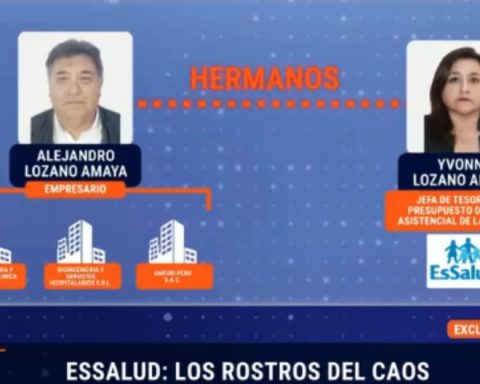After several days in the House of Representatives, the Government’s labor reform was approved in the second debate, through which changes are sought to be made to the Substantive Labor Code.
You may be interested in: Time is running out for the processing of labor reform in Congress
Upon being endorsed, this bill goes to its third debate in the Seventh Committee of the Senate of the Republic and if it obtains the green light, it would reach the plenary session of this corporation, thus completing the four debates it must complete.
It is worth mentioning that this article has a deadline to be fully approved and reconciled until the first half of next year. It is relevant to note that this is the second time that the National Government presents the labor reform, the first time was last year and it fell due to lack of quorum.
What changed in this second labor reform debate?
The paper that was approved contained 80 articles, of which seven were eliminated and eight new ones were added. Thus, it went to the third debate with 81 proposals.
Within the group of eight eliminated are proposals such as: compensation for dismissal without just cause, the creation of agricultural contracts, changes in wages and guarantees for the housing of rural workers who reside in the workplace and their family.
Also, the proposal that granted a maternity and paternity leave for same-sex adoptive couples.
Recommended: The changes that will come for workers with the approval of the labor reform
The scope of the decision by which equity was given on all points of interest of workers or their organizations to resolve legal conflicts was dropped and support by the Ministry of Labor was denied to micro and small businesses.
What was approved?
On the other hand, there is what was approved. The articles that presented the most debate are highlighted there. Among these is the change in the working day. The daytime will start at 6:00 am and will go until 7:00 pm and the night will begin at 7:00 pm and will go until 6:00 am
The big change in this article was that the night shift will no longer begin at 9:00 pm as it is at the moment, but will start two hours earlier. Likewise, the green light was given to 100% payment for Sundays and holidays, which would be adjusted progressively until 2026.
In turn, a change in permanent contracts went to the third debate, so that after four consecutive years they automatically become permanent.
Modifications were approved so that digital delivery platforms make social security payments (pensions, ARL and health) for their workers. Companies must contribute 60% while the other 40% will be provided by the worker.
With what is approved, microbusinesses will be able to make partial security payments for their workers. Also, an extension of paternity leave was approved, With what is guaranteed it would no longer be two, but would be increased to four weeks.
Also read: Labor reform: what the plenary session of the Chamber approved and eliminated this Wednesday
At the end of the debate, more than 100 new articles were proposed, however, only eight were approved, among these are: flexible work environments, formalization of passenger transport workers, paid marriage leave for three business days, among others.
Gloria Inés Ramírez, Minister of Labor
Courtesy – Ministry of Labor
What impact will what was approved have on the labor market and informality?
According to the latest data from DANE, in August unemployment in Colombia increased again at an annual level and is at 9.7%. With this context, experts such as Juan Carlos Guataquí, who is a labor consultant and university professor, highlighted that the discussion of the Government’s labor reform no longer has to do with social or content issues, but is now a more political issue.
“A little sad because really the discussion is no longer technical, it is not academic, the discussion has already become political and of course labor-related. “It’s really going to reach that point, let’s say, of counterweighting one political coalition against another, but it really has nothing to do with the discussion of the labor problem in Colombia,” said the expert.
Furthermore, he pointed out that what the Government is seeking with this bill is that the union sectors have new guarantees in favor of their function.
“It is basically a demand from a union sector that feels marginalized and that is trying to vindicate itself against an employer sector and also make 30 years more flexible,” the expert mentioned.
Also read: Labor reform: the key points to understand what the bill proposes
On the other hand, the Colombian Association of Micro, Small and Medium Enterprises (Acopi) provided figures on what a formal worker would cost from 2024 to 2027.
The analysis is discriminated by direct and indirect costs. With this, it is contemplated that the salary minimum for 2024 is $1,300,000 which with these calculations of the union ends up generating a cost of $1,987,078, when adding the transportation subsidy, vacations, legal premium, severance pay and interest, pension, compensation fund and the Occupational Risk Insurance Company (ARL), it is that is, 38.3% more.
These direct costs projected with a 10% increase in the minimum wage and a 15% transportation subsidy to 2027 reveal that the cost of a formal worker in three years would be $2,680,667.
On the other hand, the same calculation was carried out for the segment of indirect costs, where disabilities, apprentice fees, Sunday and supplementary work, compensation, staffing and family days gives a total increase of 13.3%.
With these figures, the cost of a formal worker in 2024 will no longer be $1,300,000, but with the indirect and direct amounts the total would be $1,300,000. $2,254,245 and projected to 2027 it would reach a value of $3,056,696.
LEIDY RUIZ
Journalist Portfolio


















